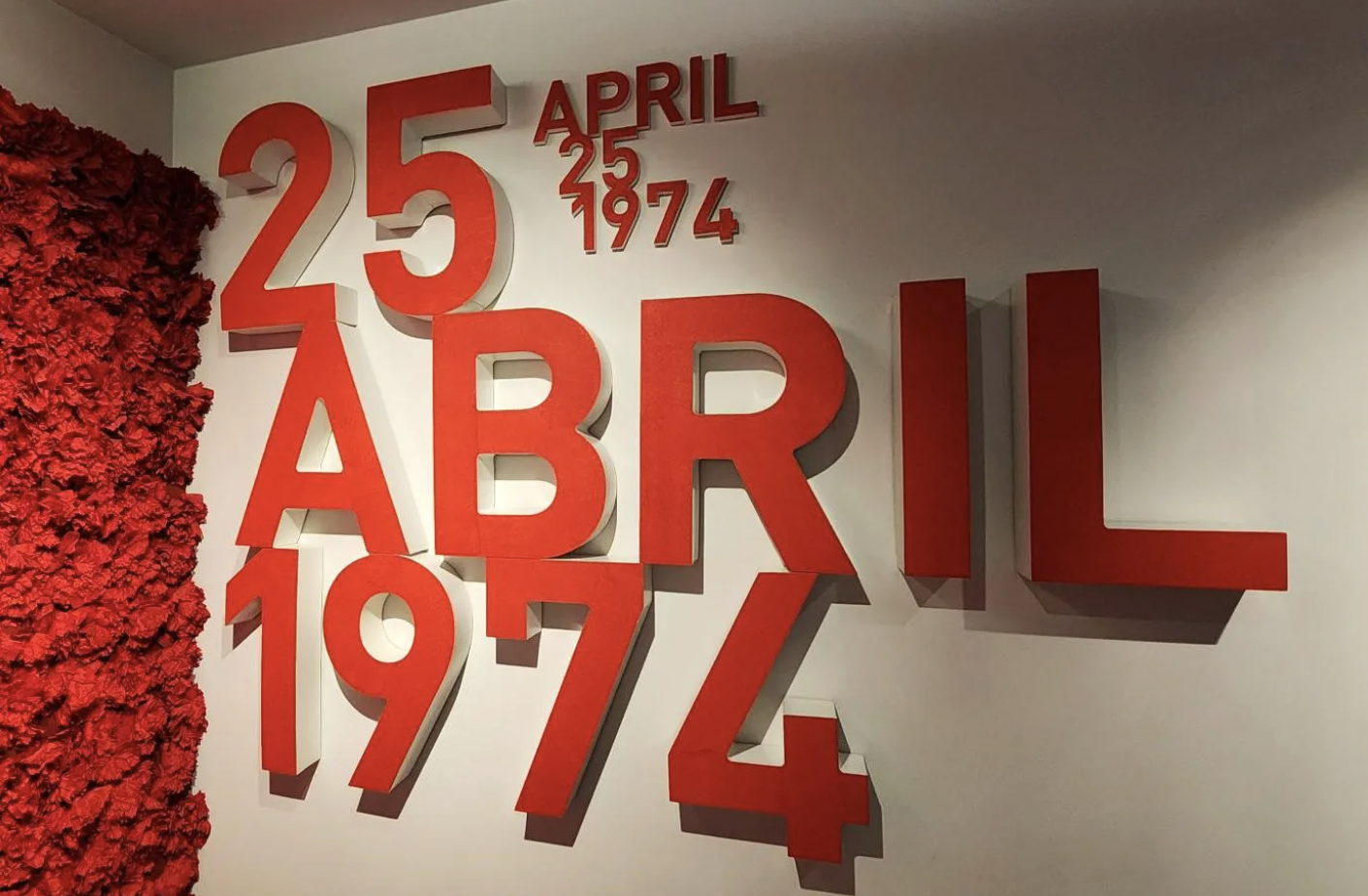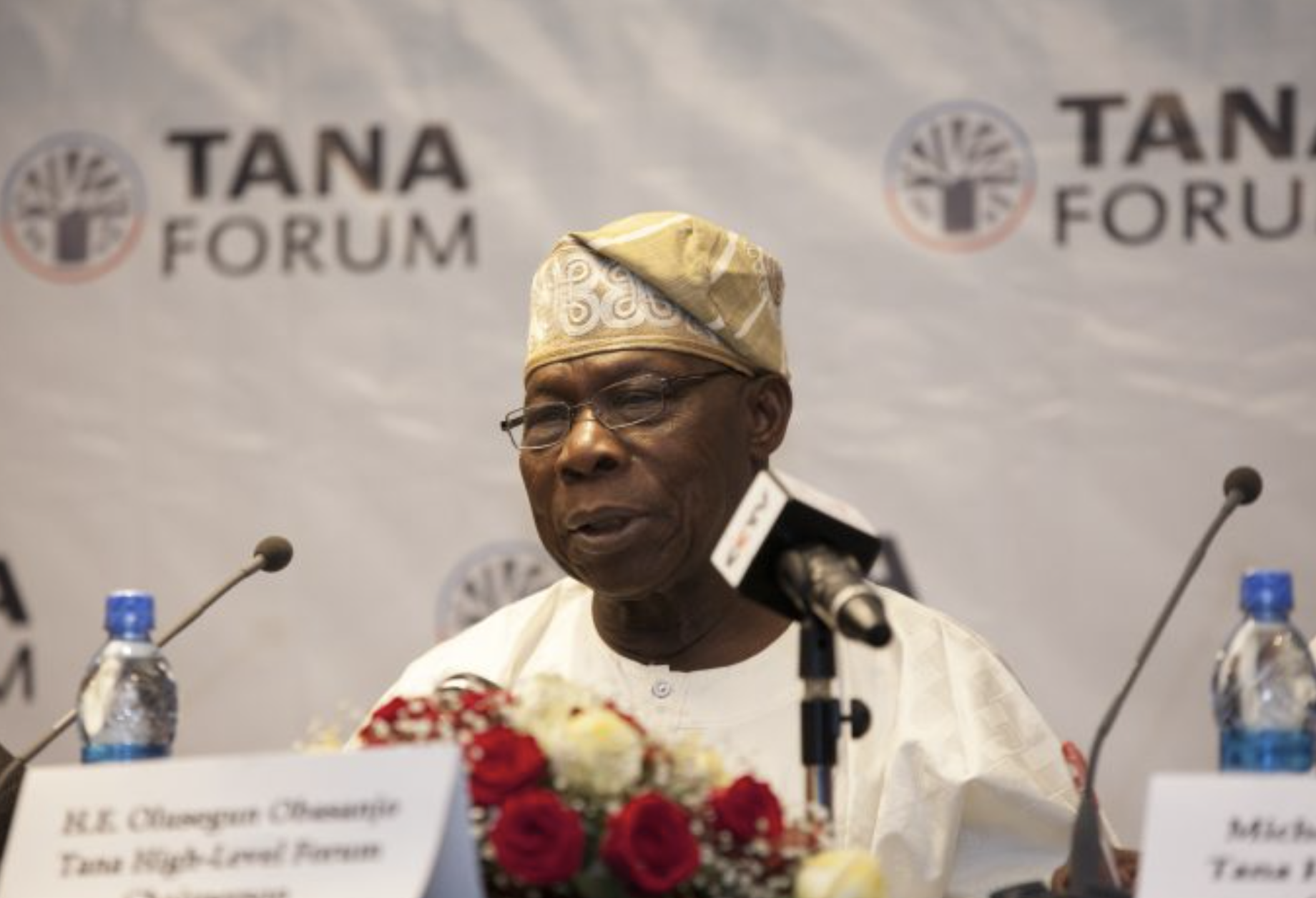News
Europe Changed Africa and Vice Versa — Today’s Relationships with Former Colonies have Fewer Shared Values
Europe changed Africa through colonialism in its euphemistically termed ‘overseas provinces’. Africa, in turn, changed the colonial powers at least as much as they changed Africa, perhaps more so in the case of Portugal. Yet Portugal’s former colonies remain stuck with the liberation generation.

Director, The Brenthurst Foundation

Associate Researcher, The Brenthurst Foundation

On 25 April 1974, Portugal’s Carnation Revolution overthrew the Estado Novo dictatorship, which had presided over the country since 1933. The signal for the coup was the airing of two songs, the first of these Portugal’s entry into the Eurovision Song Contest, Paulo Carvalho’s E Depois do Adeus on the evening of 24 April, and the second just after midnight on 25 April, when Radio Renascenca broadcast the banned song Grandola, Vila Morena. The rebels moved to take over strategic points, including the radio station, from which, at 4.20am, the first announcement was broadcast.
To misquote the Buggles, the radio playback reminds how long ago it all was. It is now longer since the coup than the duration of the dictatorship, itself outlasting its fascist counterparts in Franco’s Spain, Germany and Italy.
It was Lisbon’s John Vorster Square, where the beatings of prisoners only stopped when neighbouring diplomats (they do have their uses) complained about the noise.
There were just five deaths in the 1974 Revolution, which got its name from the proximity of the protests to Lisbon’s flower market. Carnations, then in season, were placed in muzzles of guns and on the soldiers’ uniforms. This immediately posed a stark contrast to the methods of the Estado Novo, which had maintained a regime of strict control and censorship, not least through the notorious secret police, known universally as the PIDE (Polícia de Vigilância e Defesa do Estado), created originally in 1933 by Portugal’s dictator António de Oliveira Salazar as the Polícia de Vigilância e Defesa do Estado.
The largely peaceful coup was a portent of the more secure and prosperous future which awaited the Portuguese. But it was not one that Portugal’s colonies, their wars of liberation a key reason for the coup in the first instance, were to enjoy, as they subsequently exchanged one repressive regime for another.
By 1974, half of Portugal’s budget was consumed by countering the liberation struggles in Guinea-Bissau, Mozambique and Angola, with no less than 100,000 troops stationed abroad to try and keep the liberation struggles in check. The Carnation Revolution not only ended these wars but led to a rapid transition to independence for these and Portugal’s other colonies of Cabo Verde, Sao Tome and Principe and, in southeast Asia, East Timor. And in so doing, the events in Lisbon accelerated the process of political change in the remaining white-ruled territories in then Rhodesia, South West Africa and South Africa.
Originally based at the Aljube (Arabic for “well” or “dungeon”), a three-story complex situated alongside Lisbon Cathedral, the PIDE was feared for its persecution, torture and imprisonment of political opponents.
Today a museum, its exhibits detail an elaborate system of regime control including a network of informers, deportation, censorship, opening of mail, wire-tapping and more prosaic methods of detention, sleep deprivation, isolation and physical abuse. It was Lisbon’s John Vorster Square, where the beatings of prisoners only stopped when neighbouring diplomats (they do have their uses) complained about the noise. In all, a little more than 26,000 people were imprisoned by the PIDE from 1926 to 1974.
Not far away from the Aljube is the former PIDE headquarters on the Rua Antonio Maria Cardoso in the Chiado, now a high-end residential facility selling global luxury brands. The HQ was close to the Plenary Tribunal da Boa Hora, hinting at the role that the justice system played, too, as a tool of state control, as did the private sector in creating systems of “self-protection”.
Portugal’s ‘overseas provinces’
The Estado Novo (literally, “New State”) had evolved from the Ditadura Nacional (National Dictatorship) formed after the May 1926 coup d’état. Estado Novo was at once corporatist, conservative, Catholic and nationalist. It reflected its image abroad, since the colonial territories — euphemistically termed “overseas provinces” — were considered vital to Portugal’s role beyond the numbers, supposedly evidence of its “pluricultural and multiracial character”. At its apex, Salazar “exemplified the power of a negative personal … ascetic rather than exuberant; aloof rather than gregarious; professorial rather than demagogic; understated; rather than ostentatious.”
Salazar was the quiet autocrat, a man who only travelled once by plane (to Porto) and twice outside of Portugal (to Paris and Spain), experiences which he reportedly did not enjoy. He was the aesthete to Mussolini’s flashiness. Yet, while he may have dismissed what he referred to as the comparatively “pagan Caesarism” of the Italian dictator, he was drawn to the need for authoritarianism. “The Portuguese must be treated as children: Too much too often would spoil them,” he had remarked, adding: “The truth is that I am profoundly antiparliamentarian. I hate the speeches, the verbosity, the flowery, meaningless interpolations, the way we waste passion, not around any great idea, but just around futilities, nothingness from the point of view of the national good.”
Salazar was incapacitated by a stroke in 1968, dying in 1970 apparently unaware that he was no longer in charge. During the 1974 coup, Marcelo Caetano, Salazar’s successor, was arrested at the headquarters of the Guarda Nacional Republicana on the square at the Largo do Carmo, flown to the island of Madeira and then onto Brazil, where he died in exile. A turbulent period ensued, with a left-wing coup, followed by a counter-coup. The period of instability ended with the election of the socialist Mario Soares to office as Prime Minister in 1976. Soares, who had been incarcerated and forced into exile by the regime, served two terms as prime minister, and then was elected as the seventeenth president of Portugal in 1986, and again in 1991.
Mario Soares’ son, Joao, who became Mayor of Lisbon in 1995 and later served as a European Member of Parliament, says “the coup became a revolution”, leading to a new, democratic dispensation and constitution the following year. Vasco Lourenco, now 82, was one of the cabal of young captains behind the 1975 coup. “With all this,” he says, “the Carnation Revolution put an end to the isolationism to which Portugal had been condemned for several years, and helped the birth of new independent countries. Constituting the pioneering movement of enormous democratic transformations around the world and demonstrating that the Armed Forces are not condemned to be an instrument of oppression, and can, on the contrary, be a liberating element of the peoples.”
Africa as Portuguese cultural extension
More than a source of wealth, Africa was seen as an extension of Portuguese culture and the Catholic religion, allowing Lisbon to punch above its weight as a bastion of anti-communism. From 1961, all Africans in Portugal’s colonies held Portuguese citizenship.
Despite the increasing cost of the colonial wars, during the 1950s and sixties, the Portuguese economy expanded rapidly, driven by the formation of family-run conglomerates, the celebrated “hundred families” who Salazar held in thrall.
One of the largest of these enterprises, with branches throughout the empire, was the Companhia União Fabril (CUF), with interests in cement, chemicals, textiles, beverages, naval and electrical engineering, banking and insurance, paper, tourism and mining. The economy grew rapidly under the Estado Novo, enabling the regime to tackle some of the most severe social problems. Infant mortality, at a staggering 145/1,000 births in 1926, was reduced to 38/1,000 in 1974, and illiteracy from 66% in 1920 to 26% in 1970, reflecting an increase in national income from 40% of the European Economic Community average in 1960 to 56% by 1974.
In the empire itself, once considered as little more than a source of raw materials and cheap labour, two-way trade grew and Lisbon started to invest in big infrastructure, including dams, hydropower such as Calueque in southern Angola (where construction commenced in 1972) and Cahora Bassa (1969) in Mozambique, and in heavy industry and railways.
As a result, by the 1960s, Angola and Mozambique had grown rapidly through mining investment, a large-scale commercial agricultural sector and a rapidly growing manufacturing industry. Portuguese emigration was encouraged, both as a means of reducing pressure at home, increasing the ties between the colonies and metropole, and driving up development in both.
With diverse international investments in agriculture, services including banking and insurance, and in mining and the refinery, value-addition in Mozambique’s manufacturing was calculated as the sixth highest in sub-Saharan Africa by 1973. The number of Portuguese settlers in Mozambique doubled during the 1960s to 300,000 by the end of the decade, though still a fraction of the local population of 8 million. The number of Portuguese immigrants in Angola nearly tripled over the decade from 180,000 in 1960, attracted by considerable opportunities, the difference in their wealth and that of the five million indigenous Angolans estimated to be as much as 40:1.
Greatest exodus from Africa
Some 90% of Portuguese citizens left Mozambique after independence on 25 June 1975. As many as 500,000 settlers fled Angola after the declaration of independence of 11 November 1975, and at least the same number of Africans moved internally and into the region. At the time, this event was dubbed the “greatest exodus in the history of Africa”.

With the arrival of the hundreds of thousands of retornados in Portugal from the colonies, the Carnation Revolution sparked a period of political instability and counter-coups in Portugal, and one of insipid economic growth, ultimately stabilised and reversed by its acceptance into the European Community in 1986. Today, infant mortality is 3/1,000, literacy at 95% and per capita income among Portugal’s ten million citizens around €24,500 or 65.5% of the EU average.
The effect of the suddenness of the political transition, however, in its former colonies was comparatively disastrous, especially when added to an unhealthy dose of socialist naivete, immature administration and narrow-minded retribution. Outside of its small but rapidly growing oil sector, Angola’s commercial industry was effectively destroyed, its manufacturing sector wiped out, agriculture returned to its subsistence roots, and mining severely damaged. In 1973, Angola’s chief sources of export earnings were oil (30%), coffee (26.5%), diamonds (10.4%) and iron ore (6.2%), while manufacturing accounted for 16% of GDP. By 1976, there was oil and some mining. Coffee, where Angola had once been the world’s second-largest exporter, had collapsed.
Angola was poised at the start of a civil war that went on for nearly 30 years, fed by the West and East bloc along with apartheid South Africa and Cuba, while Mozambique became embroiled in an initially Rhodesian-instigated civil war which left it effectively dismembered by the end of the 1980s, officially by then among the bottom three poorest nations on earth with a per capita income of under $200.
Portugal’s success since 1974 has been based, reflects Antonio Monteiro, a retired diplomat, on several transitions. The first is the “opening of minds” by the promotion of education and development of the population. The second is the “opening of the political system”, away from dictatorship to one that is based on freedom of expression and civil liberties. The third is the “opening of the country” from a colonial fixation to European integration. And the final opening is that of the “creation of choice” in everything from services to government.
In essence, through this process of liberalisation, Portugal has been able to escape being a prisoner of its authoritarian past, at least at home.
Portuguese paradox
Herein lies a paradox. Absent the same choices in its former “overseas provinces”, they will not make the same progress. Portuguese officials and politicians are not keen, either, to encourage them down this path, fearful that in so doing they will invoke colonial spectres, upset commercial relationships, and upend the limited leverage they possess to no positive benefit. As a result Lisbon’s preference is to hide behind European skirts, even though Europe possesses less of an Africa strategy than a series of good intentions.
Europe changed Africa through colonialism. Africa, in turn, changed the colonial powers at least as much as they changed Africa, perhaps more so in the case of Portugal.
Today, the relationship is less about increasingly shared values, however, as it was fifty years ago for a positive if brief moment, than simple mercantilist impulses. While European democracy has deepened, the choices of citizens protected and improved, its societies strengthened, and its economies have surged; Africa has stumbled, handicapped by an elitist, extractive political economy built on a cocktail of corruption, repression and identity politics. Whereas Portugal was able to liberate itself from the twin burdens of authoritarianism and colonial nostalgia, in southern Africa, its former colonies remain stuck with the liberation generation.
As the gap between Europe and Africa widens, it seems, as the Buggles sang, that “We can’t rewind, we’ve gone too far”.
This article originally appeared on the Daily Maverick

